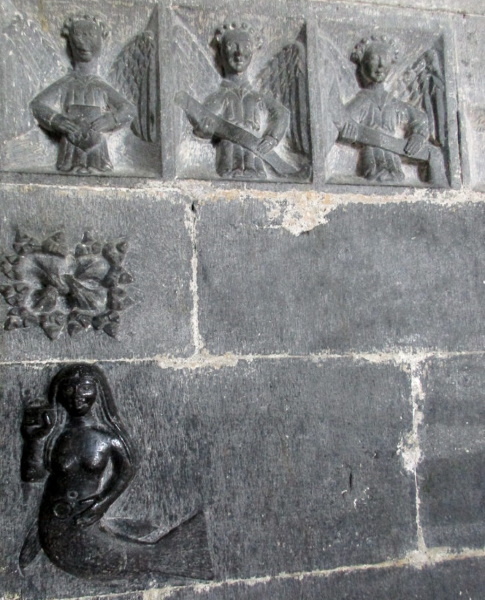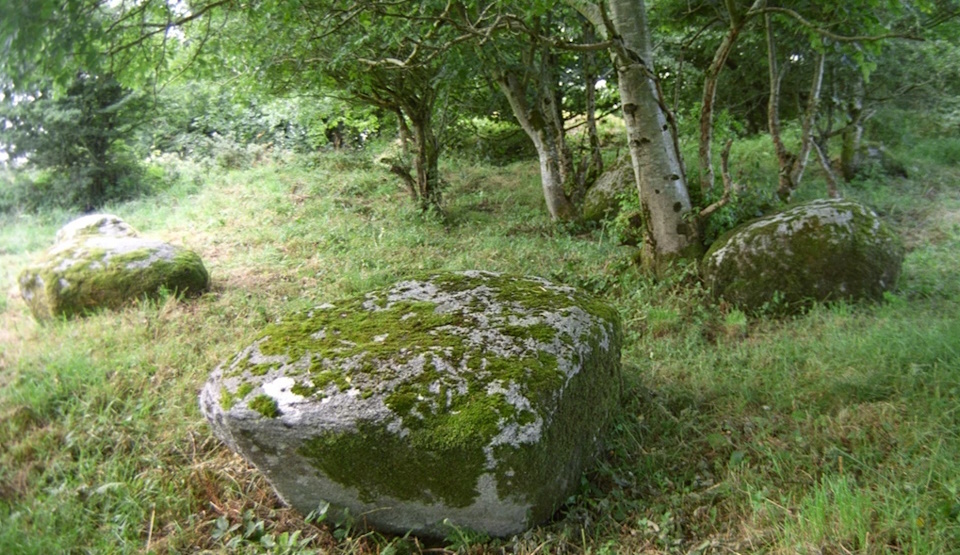27th January - Feast of Lí Ban, the Irish Mermaid Saint
Written by Anne Newman 30th January 2020 additions 2023
Lí Ban (beautiful woman) was the daughter of Eochaidh, King of Ulster. Eochaidh’s palace and lands were flooded, drowning all who lived there and forming the great body of water we know today as Lough Neagh. Only Lí Ban survived, along with her dog, in an underwater chamber in the lake for a year.
She prayed to the Goddess Danu to be turned into a salmon but Danu transformed into a Mermaid who was half-human, half-salmon. Her dog was turned into an otter. Lí Ban and her otter, swam down the great river out of the lough, and into the open sea and there she ived there for the next three hundred years fulfilling the prophecy:
“Liban will swim eastwards, westwards, hither, thither, over each sea.”
After 300 years had passed, Comgall had founded his monastery at Bangor, County Down, on the far northeast coast of Ireland. It was known as Bangor Mór and was a great centre of learning. Young men came from every corner of the land to study there.
One day Comgall sent Beoan and some other monks to Rome with a message for Pope Gregory and on the voyage, Beoan caught Lí Ban in his fishing nets. She promised to return within one year. When a year passed, she came ashore, and Comgall baptized her with the name Muirgen. She died not long after, Comgall having promised her a heavenly reward and she became known as the Mermaid Saint.

Photo of a mermaid carving on the chancel arch in Clonfert Cathedral, Co. Galway.
The “Annals of the Four Masters’, compiled by Irish monks in the 17th century, tells that Liban was captured on the strand (beach) of "Ollarbha" - River Larne, in the year 558.
In this year was taken the mermaid, Líban… in the net of Beoan, son of Inli, the fisherman of Comghall of Beannchair.
The annals also record that Lí Ban was baptized by Comgall and given the name Muirgen, which means born of the sea but her story begins 300 years earlier. An account of Liban's life story is found in the tale Aided Echach maic Maireda (Death of Eochaid son of Mairid), preserved in the 12th century Lebor na hUidre ("Book of the Dun Cow").
The tale has been translated by P.W. Joyce and by Stamdish Hyes O'Grady (1892).
You can still find memories and stories of Lí Ban today. A handmade quilt hangs on the transept wall of the new abbey at Bangor, and in one of it’s squares you will find the mermaid saint floating on the crest of a sea wave.
The Dowd Stones -Scurmore, Enniscrone
These stones are believed to be the petrified children of a mermaid and a local man named Dowd. Photo - Duchas Photographic collection
Long ago there lived in Bonniconlon a rich chieftain named Fergus O’Dowd. He owed immense property and he had many castles built on his estate. It is said that his haggard consisted of no less than ninety stacks of oats and over one hundred ricks of hay. He also had many flocks and herds. One day when walking by the seashore he saw a mermaid sitting on a rock comnbing her hair, he drew nearer to her until at last he was near enough to snatch her grean claok which lay on the rocks. The mermaid immediately ran after him and begged him to give her back the cloak. He however refused and she had to follow him because she could not swim without it. When they reached Bonniconlon he married her. They lived happily for many years and they had three children, two boys and a girl. But he had to keep the cloak forever out of her sight else she could go back again to the sea. and the story continues here....






